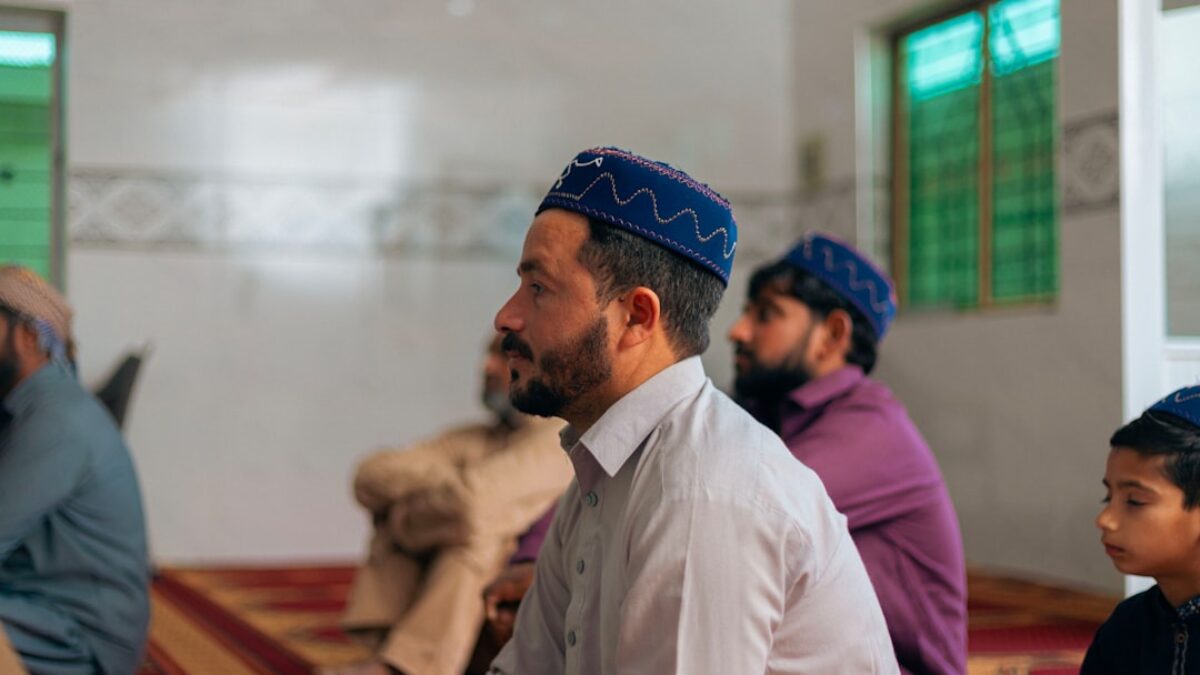Finding Peace: Essential Stress Relief Techniques in Islam
Introduction
In an increasingly fast-paced and often overwhelming world, stress relief has become more essential than ever. For many Muslims, the teachings of Islam offer a plethora of techniques and practices that promote inner peace and tranquility. In this article, we will explore various stress relief techniques rooted in Islamic traditions, drawing from the Qur’an and Hadith, as well as contemporary real-world examples, authentic reviews from practicing Muslims, and practical tips for implementation.
The Islamic Perspective on Stress
Islam fundamentally teaches kindness, patience, and gratitude. The Qur’an emphasizes reliance on Allah during stressful times, portraying such reliance as a source of comfort and peace. For instance, Allah says in Surah Al-Baqarah (2:286):
"Allah does not burden a soul beyond that it can bear."
This verse reassures Muslims that their struggles are manageable and part of a greater plan. The concept of tawakkul, or reliance on Allah, reinforces the idea that seeking peace extends beyond physical means; it is tied intrinsically to faith and spirituality. Studies have shown that spiritual practice can significantly reduce stress levels, confirming the importance of these teachings in everyday life.
Prayer (Salah): A Source of Serenity
One of the five pillars of Islam, Salah (prayer) provides Muslims with opportunities to pause and reconnect with Allah throughout the day. With five prescribed prayers, Muslims find structured moments to disengage from worldly stresses and focus on their spiritual duties. Each prayer acts as a moment of mindfulness, a time to reflect on one’s actions and intentions.
Real-world Example:
Fatima, a practicing Muslim in her 30s, shared her experience: "Before I started prioritizing my Salah, I often felt overwhelmed with work and family responsibilities. Now, those moments of prayer are pure bliss for me. They give me time to breathe and recenter my thoughts. Since implementing these breaks, my stress levels have significantly decreased."
Practical Tips for Implementation:
- Create a Designated Prayer Space: Dedicate a quiet, comfortable area in your home for prayer to make it inviting and peaceful.
- Focus on Mindfulness: During prayer, focus your thoughts solely on your connection with Allah, letting go of external distractions.
- Incorporate Dua: Consider adding personal supplications (dua) to your prayer routine. Expressing your fears and hopes can provide additional emotional relief.
The Power of Dhikr (Remembrance of Allah)
Dhikr refers to the practice of remembering Allah through phrases and words, such as "SubhanAllah" (Glory be to Allah), "Alhamdulillah" (All praise is due to Allah), and "Allahu Akbar" (Allah is the Greatest). Engaging in dhikr helps to quiet the mind and instill a sense of calmness. Studies have shown that repetitive prayers and mantras can lower anxiety and promote relaxation.
Authentic Reviews:
Hassan, a college student, remarked: "I often face high pressure during exams. Making dhikr has been a game-changer for me. Whenever I feel stressed, I recite the names of Allah. It brings me instant peace and clarity."
Practical Tips for Implementation:
- Schedule Time for Dhikr: Incorporate it into your daily routine, perhaps after the obligatory prayers or during your morning commute.
- Use Technology: There are numerous apps available that can aid you in keeping track of your dhikr, providing reminders and suggestions for phrases.
- Combine Dhikr with Relaxation Techniques: Practice dhikr while engaging in deep breathing exercises to maximize stress relief.
Fasting (Sawm): Physical and Mental Clarity
Fasting during the month of Ramadan is a fundamental obligation for Muslims. However, the benefits of fasting extend beyond spiritual obedience. Many psychological studies point to fasting as an effective way to enhance mental clarity and relieve stress. It requires discipline, self-control, and reflection—qualities that can help improve one’s mental state.
Real-world Example:
Aisha, a nurse, shared: "During Ramadan, the act of fasting tests my patience but also gives me a sense of peace. I feel more focused and less burdened by my daily stresses. It’s not just about abstaining from food; it’s a holistic cleanse for the mind, body, and spirit."
Practical Tips for Implementation:
- Incorporate Fasting on Non-Obligatory Days: Try fasting on Mondays and Thursdays, as recommended by the Prophet Muhammad (peace be upon him).
- Stay Hydrated: Ensure you hydrate adequately during non-fasting hours to support mental clarity and minimize stress.
- Reflect While Fasting: Use the time to meditate on what stress truly means and how you can manage it in a more Islamic manner.
Community and Family Support
The role of community in Islam cannot be overlooked. Support from family and friends contributes significantly to stress relief. Engaging in community activities allows individuals to share burdens and foster a sense of belonging.
Authentic Reviews:
Omar, who participates actively in community service, stated: "Volunteering with others has allowed me to step outside of my worries. When I see others struggle, it puts my own difficulties into perspective, and it fosters gratitude in my heart."
Practical Tips for Implementation:
- Engage in Community Activities: Join local Islamic organizations or volunteer for events where you can meet like-minded individuals.
- Share Your Burdens: Open up to family and friends about your stressors; often, a listening ear can provide immense relief.
- Organize Family Time: Schedule regular family gatherings to ensure supportive relationships thrive.
Reading the Qur’an: A Therapeutic Approach
Engaging with the Qur’an serves as a significant stress relief technique. Scholars and therapists alike have acknowledged the calming effects of reading scripture. The rhythms, poetry, and profound messages in the Qur’an provide solace and guidance during turbulent times.
Real-world Example:
Zainab, a middle school teacher, mentioned: "I make it a point to read at least a few pages of the Qur’an daily. It’s like therapy for me. No matter how chaotic my life feels, the words bring me back to center."
Practical Tips for Implementation:
- Daily Reading Goal: Set a manageable target for daily Qur’an reading. Even a few verses can be transformative.
- Reflect on Meaning: Choose translations that resonate with you, and contemplate their meanings to deepen the experience.
- Listen to Recitations: Incorporate listening to Qur’anic recitations during your daily commutes for an alternative connection.
Nature and Physical Well-being
Islam encourages a harmonious relationship with nature. Engaging with the natural world can significantly reduce stress and promote a sense of well-being. The Prophet Muhammad (peace be upon him) often emphasized the importance of walking in nature and enjoying its beauty.
Real-world Example:
Ibrahim, an avid hiker, shared: "Whenever I feel overwhelmed, I take a hike. Being in nature clears my mind. I often reflect on Allah’s creation, which always helps me put my worries into perspective."
Practical Tips for Implementation:
- Schedule Outdoor Time: Make a point to spend time outside, whether it’s a park, beach, or hiking trail.
- Practice Mindful Walking: Focus on your breathing and the sights and sounds around you while walking, promoting mindfulness and peace.
- Incorporate Islamic Education Outdoors: Combine your nature walks with reciting or reflecting on the Qur’an or Hadith that speak about nature.
Utilizing Gratitude Practices
Gratitude is a significant theme in Islam and plays an essential role in reducing stress. The Prophet Muhammad (peace be upon him) taught the importance of being thankful for even the smallest blessings. Gratitude can help shift focus from stressors to things that uplift and enrich your life.
Authentic Reviews:
Layla shared: "Practicing gratitude has been a life-changer. I keep a journal where I write three things I’m grateful for each day. Focusing on positives gives me a sense of peace, especially during tough times."
Practical Tips for Implementation:
- Journaling: Start a gratitude journal, writing down your positive experiences, even if small.
- Express Gratitude to Others: Make it a habit to thank those around you verbally or through small acts of kindness.
- Incorporate Gratitude into Prayer: Include gratitude in your daily supplications, thanking Allah for daily blessings.
FAQs
1. Can stress relief techniques in Islam be integrated with modern psychology?
Absolutely! Many Islamic teachings resonate with modern psychological principles, such as mindfulness, gratitude, and community support. Techniques such as dhikr and Salah can enhance mental health when used alongside therapy or counseling.
2. How can someone who is new to Islam implement these techniques?
Start with small steps. Begin by learning about Salah and incorporating it into your daily routine. Gradually explore other practices, such as reading the Qur’an or engaging in dhikr, as you become more comfortable.
3. Is it essential to perform all these techniques?
No, each individual is different. The goal is to find practices that resonate with you. Incorporate those that fit your lifestyle and preferences to create a personalized stress relief toolkit.
4. Are these techniques effective for both Muslims and non-Muslims?
Many techniques—such as mindfulness, gratitude, and community support—are universal and can be beneficial for anyone, regardless of their faith. Islam fosters practices that promote mental well-being, which can be appreciated by all.
Conclusion
In conclusion, Islam provides a rich tapestry of stress relief techniques that harmonize physical, spiritual, and emotional well-being. From the mindful practice of Salah to the introspective nature of dhikr, these techniques offer opportunities for Muslims to find peace amidst life’s challenges. By integrating these practices with everyday life, one can experience reduced stress and increased clarity. As more people turn to these time-tested techniques, the potential for enhanced mental health and spiritual fulfillment becomes increasingly apparent.
In a world rife with challenges, the pathways laid out through Islamic teachings serve not just as spiritual guidelines but as essential tools for finding inner peace. Embrace these practices and witness a transformative journey toward tranquility.
























Post Comment